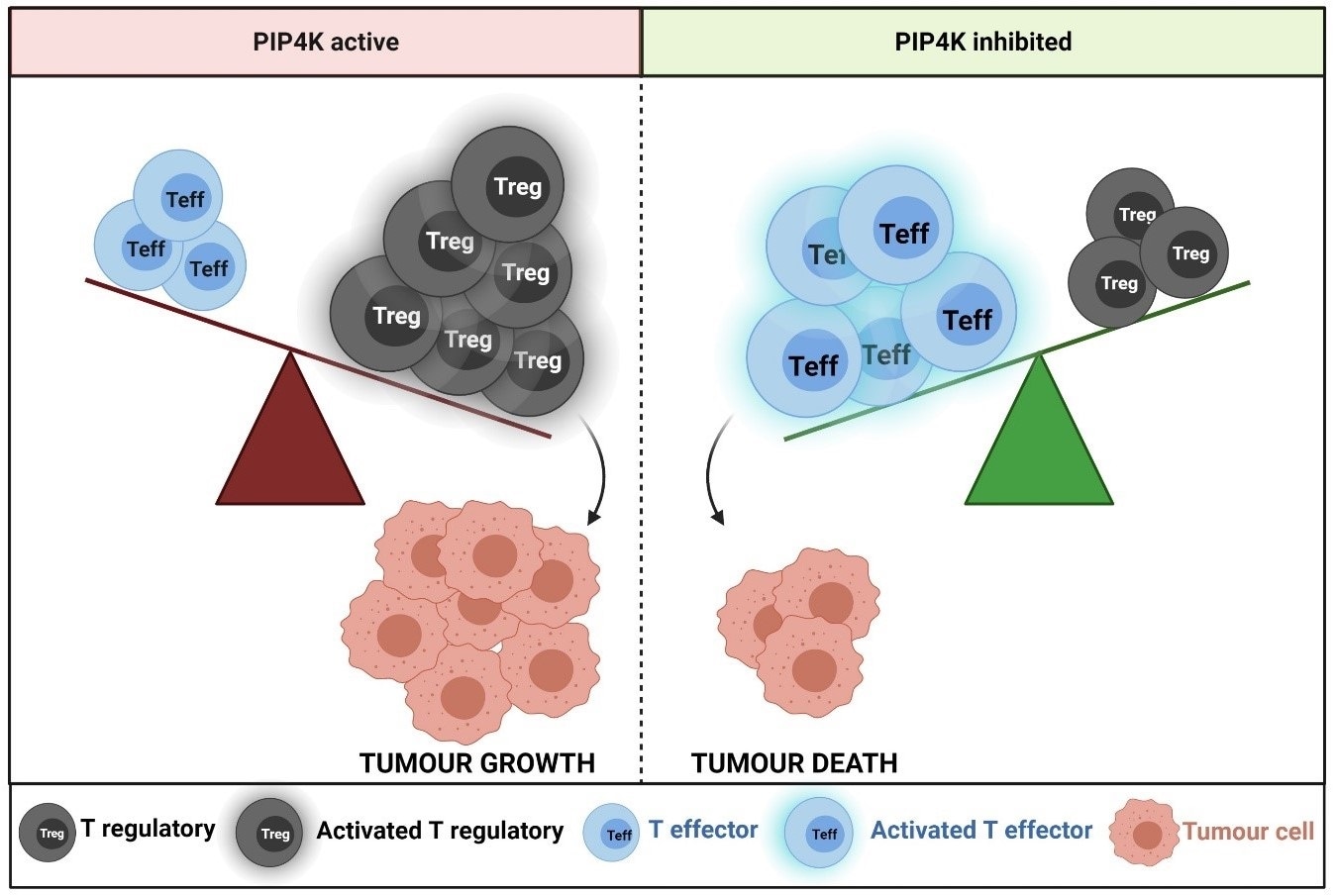A new study has found a promising treatment that could enhance the ability of the human immune system to seek and destroy cancer cells inside the body.

Diagram explaining effects on tumor. Image Credit: University of Southampton.
Researchers have found a method to inhibit the activity of a group of cells that regulate the immune system, which in turn can unleash other immune cells to fight against tumors in cancer patients.
A patient’s immune system is more than able to detect and remove cancer cells and immunotherapy has recently emerged as a novel therapy for many different types of cancers. However, cancer cells can generate a microenvironment within the tumour that stops the immune system from working thereby limiting the general use and success of immunotherapy.”
Nullin Divecha, Study Lead and Professor of Cell Signalling, University of Southampton
A group of cells known as Teffector cells (Teffs) in the immune system partially perform the detection and elimination of cancer cells. The extent to which the Teff cells work to detect and eliminate cancer cells is partially governed by other T cells known as T-regulatory cells or Tregs. Tregs interact physically with the Teff cells and generate molecules that decrease the Teff cells’ ability to work properly.
Tregs carry out an important function in the human body because without them, the immune system can run out of control and attack normal cells of the body. However, in cancer patients we need to give the Teff cells more freedom to carry out their job.”
Nullin Divecha, Study Lead and Professor of Cell Signalling, University of Southampton
Molecules unleashed by tumor cells add to the problem by attracting and gathering Tregs, thereby further decreasing the activity and function of Teff cells. Although there are mechanisms to suppress Treg cells, Teff and Treg cells are very similar, generally resulting in the suppression of Teff cells as well.
The new study reported in the Proceedings of the National Academy of Sciences of the United States of America describes how researchers from the University of Southampton and the National Institute of Molecular Genetics in Milan demonstrated that suppression of a class of enzymes in cells known as PIP4K could be the solution to restrict Tregs without any impact on Teffs.
The researchers isolated Tregs from healthy donors and inhibited the production of the PIP4K proteins by using genetic technology. They noticed that loss of PIP4Ks from Treg cells prevented their growth and response to immune signals, which would thus prevent them from inhibiting the growth and function of Teff cells.
Most significantly, the activity of the Teff cells was not restricted by the loss of the same enzymes.
“This was surprising because PIP4Ks are in both types of T cells in similar concentrations but our study shows that they seem to have a more important function for Tregs than Teffectors,” noted Dr. Alessandro Poli who performed the experimental research.
The suppression of PIP4K as a promising therapeutic for patients necessitates the development of inhibitory molecules. “Towards this end, we show that treatment with a drug-like inhibitor of PIP4K could enable the immune system to function more strongly and be better equipped to destroy tumor cells.”
Source:
Journal reference:
Poli, A., et al. (2021) PIP4Ks impact on PI3K, FOXP3, and UHRF1 signaling and modulate human regulatory T cell proliferation and immunosuppressive activity. Proceedings of the National Academy of Sciences. doi.org/10.1073/pnas.2010053118.